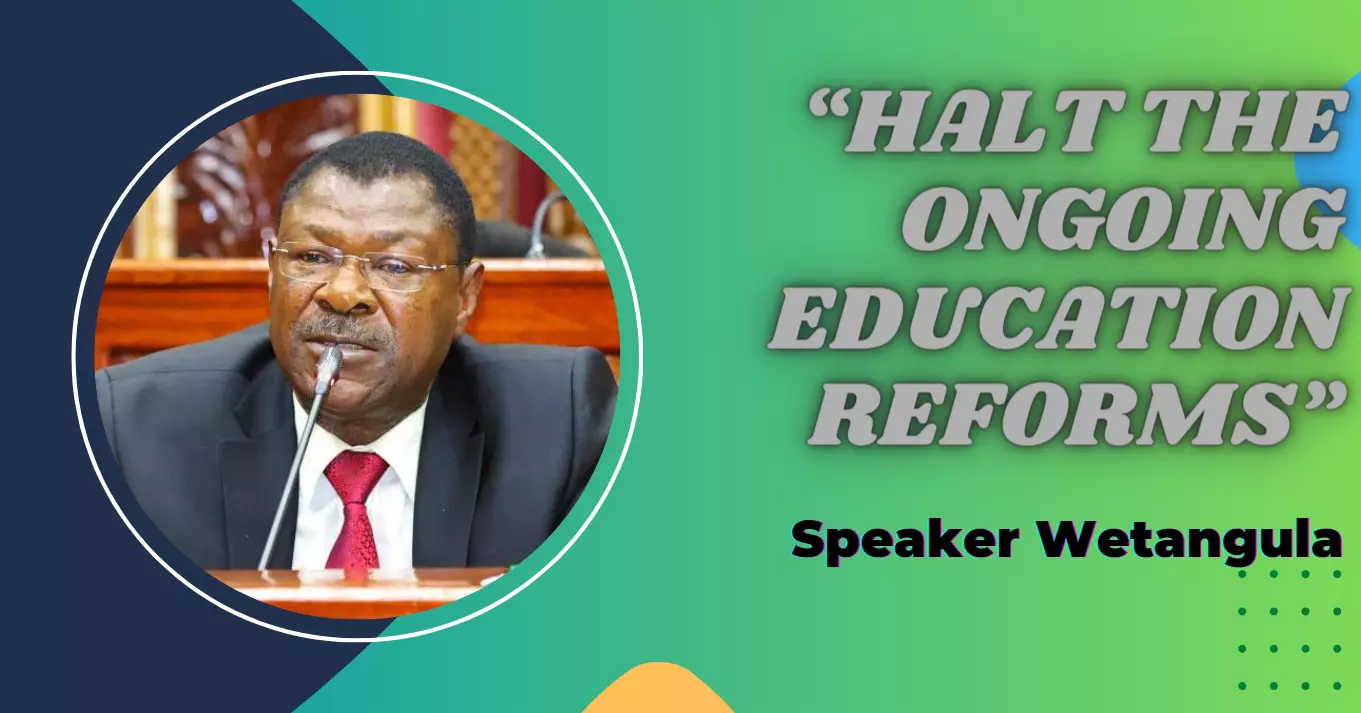Parliament Puts a Halt to Education Reforms, What Next?

In recent times, a wave of educational reforms recommended by the Presidential Working Party on Education Reforms (PWPER) has been a topic of extensive discussion. These recommendations were meticulously crafted and subsequently submitted to President William Ruto, who swiftly issued directives for their immediate execution by various government entities. Among the transformative measures outlined in these reforms were alterations to the Competency-Based Curriculum (CBC) system, the introduction of a novel education financing framework, and most notably, a restructured grading system for the Kenya Certificate of Secondary Education (KCSE) examination.
Parliament's Intervention
However, the wheels of progress ground to an abrupt halt when the esteemed Parliament, in a move that took many by surprise, suspended the implementation of these groundbreaking reforms proposed by the Prof. Raphael Munavu-led commission. The decision was met with significant controversy, setting the stage for a fiery debate within the hallowed halls of Parliament.
Emuhaya Member of Parliament (MP), Omboko Milemba, took center stage during this critical juncture, raising a point of order that would set the tone for the ensuing discourse. Milemba vehemently contended that the recommendations put forth by the Prof. Munavu-led commission ran afoul of not only established laws but also the sacrosanct constitution of the land. He implored the Speaker of the House, Moses Wetangula, to render a verdict on the perplexing matter, shedding light on why these recommendations were being pursued prior to securing the endorsement of the legislature.
Place of the Law in the Reforms
"We want your direction so that people do not change the law or the constitution through the back door," Milemba challenged Speaker Wetangula. His impassioned sentiments resonated with a chorus of like-minded parliamentarians who were equally alarmed by the unfolding developments and sought clarity from the Speaker to forestall any further implementation of the contentious recommendations.
Ainabkoi MP William Chepkonga lent his voice to the growing chorus of dissent, asserting, "There is no one in this country that can make law however high or mighty they think they are." He vehemently emphasized that non-elected individuals should not be entrusted with the solemn duty of lawmaking, as this would constitute a blatant violation of the constitutional order. Chepkonga went a step further, urging Speaker Wetangula to make a resolute statement from his distinguished chair, demanding an immediate cessation of all implementation efforts.
Rarieda MP Otiende Amollo entered the fray, accusing the Ministry of Education of attempting to circumvent established legal processes by preempting parliamentary or judicial scrutiny of their recommendations. He cautioned against the premature implementation of these proposals, highlighting that they remained in the realm of policy documents, yet to be enshrined in the hallowed halls of law. Moreover, Amollo raised concerns about the appointment of an implementation committee that had already embarked on executing the recommendations without the prerequisite parliamentary or judicial approval.
"I am aware that not only is it a policy document that has not been crystallized into law, but they have purported to appoint an implementation committee which is already implementing it. It is not even considered if parliament will accept it into law or not," Amollo pointedly remarked.
Leader of Majority in Support
The Majority Leader, Kimani Ichung'wa, took a decisive stance, pledging to engage Education Cabinet Secretary Ezekiel Machogu in an effort to dissuade him from forging ahead with the recommendations, especially those that demanded the imprimatur of the legislative body. Ichung'wa firmly underscored that no individual, not even cabinet secretaries, wielded the authority to craft legislation. Their prerogative was confined to offering recommendations that could subsequently be embraced and ratified by the August House.
"Nobody including cabinet secretaries has the power to make the law. Not even a presidential working group. The best they can do is to make recommendations that if they are adopted by this House they can be implemented," Ichung'wa declared emphatically.
The Speaker's Verdict
In response to the mounting concerns and pleas for intervention, Speaker Moses Wetangula assumed the role of arbiter, issuing a ruling that would shape the course of this contentious debate. He directed the Majority Leader to furnish the House with a comprehensive statement on the matter within a fortnight. In delivering his verdict, Speaker Wetangula emphatically reaffirmed the constitutional role of Parliament in the legislative process, firmly asserting,
"Nobody and I repeat nobody including cabinet secretaries can purport to make law or do things that can be interpreted that they have made law because they have no capacity to make law."
In this highly charged and polarizing debate, the parliamentary chambers reverberated with the resounding assertion of the primacy of the legislative body in shaping the nation's laws and policies. The clash between the Executive's push for educational reforms and Parliament's unwavering commitment to its constitutional role underscores the delicate balance of power and the profound impact of such decisions on the future of Kenya's education system. As the nation watches, the fate of these proposed reforms remains uncertain, subject to the deliberations and decisions of the very institution designed to represent the will of the people—the Parliament.
